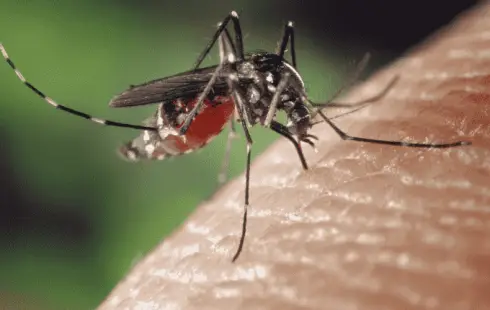
Fully Funded Scholarship Opportunity at the Bavarian International School for 2026-27
Section: News
 Malaria, a mosquito-borne infectious disease caused by the Plasmodium parasite, continues to exact a heavy toll on global public health, particularly in regions with limited access to healthcare resources. Despite advances in treatment and prevention, malaria remains a significant cause of morbidity and mortality, claiming hundreds of thousands of lives annually. However, concerted efforts from governments, healthcare organizations, and communities worldwide are making strides toward eradicating this preventable disease.
Malaria, a mosquito-borne infectious disease caused by the Plasmodium parasite, continues to exact a heavy toll on global public health, particularly in regions with limited access to healthcare resources. Despite advances in treatment and prevention, malaria remains a significant cause of morbidity and mortality, claiming hundreds of thousands of lives annually. However, concerted efforts from governments, healthcare organizations, and communities worldwide are making strides toward eradicating this preventable disease.
Malaria poses a formidable challenge due to its complex lifecycle, which involves transmission through the bite of infected Anopheles mosquitoes. Symptoms typically include fever, chills, and flu-like illness, progressing to severe complications if left untreated. Children under five and pregnant women are especially vulnerable, facing heightened risks of severe illness and death.
Prevention Strategies:
1. Vector Control:
Central to malaria prevention is the control of mosquito populations and their breeding sites. This is achieved through various means, including:
2. Chemoprevention:
Intermittent Preventive Treatment (IPT) and Seasonal Malaria Chemoprevention (SMC) are preventive measures aimed at vulnerable populations, particularly pregnant women and young children living in high-transmission areas. These strategies involve the administration of antimalarial medications at regular intervals to prevent infection and reduce the risk of severe disease.
3. Environmental Management:
Efforts to mitigate mosquito breeding habitats and minimize human-mosquito contact are integral components of malaria prevention. This entails initiatives such as draining stagnant water, implementing larval control measures, and promoting community-led sanitation practices to reduce mosquito breeding sites.
4. Early Diagnosis and Treatment:
Timely diagnosis and prompt treatment are critical in preventing severe malaria complications and interrupting transmission cycles. Rapid diagnostic tests (RDTs) enable healthcare providers to swiftly diagnose malaria in endemic regions, facilitating timely administration of antimalarial medications.
5. Behavioral Interventions:
Educating communities about malaria transmission, symptoms, and preventive measures is essential in fostering behavioral change and empowering individuals to protect themselves against infection. Community engagement initiatives, health education campaigns, and the promotion of personal protective measures play pivotal roles in malaria prevention efforts.
While significant progress has been made in reducing malaria incidence and mortality, formidable challenges persist on the path to eradication. Antimicrobial resistance, climate change, socioeconomic disparities, and fragile health systems continue to pose obstacles to malaria control efforts, underscoring the need for sustained investment and collaborative action.
In recent years, innovative approaches such as gene drive technology, novel vaccine candidates, and targeted interventions tailored to local epidemiological contexts have shown promise in augmenting existing malaria control strategies. Additionally, multisectoral partnerships involving governments, non-governmental organizations, research institutions, and the private sector are essential for mobilizing resources, fostering innovation, and strengthening health systems to achieve malaria elimination goals.
Malaria remains a formidable global health challenge, but concerted efforts to prevent, diagnose, and treat the disease have yielded significant gains. By embracing a multifaceted approach encompassing vector control, chemoprevention, environmental management, early diagnosis, and community engagement, stakeholders can accelerate progress toward a malaria-free future.
As the world collectively strives to overcome the scourge of malaria, sustained political commitment, financial investment, and scientific innovation are imperative to realize the vision of a world where no one suffers needlessly from this preventable and treatable disease. Together, we can turn the tide against malaria and build a healthier, more resilient future for generations to come.

Section: News

Section: Arts

Section: Travel

Section: Arts

Section: Arts

Section: Arts

Section: Fashion

Section: Politics

Section: Fashion

Section: News
Both private Health Insurance in Germany and public insurance, is often complicated to navigate, not to mention expensive. As an expat, you are required to navigate this landscape within weeks of arriving, so check our FAQ on PKV. For our guide on resources and access to agents who can give you a competitive quote, try our PKV Cost comparison tool.
Germany is famous for its medical expertise and extensive number of hospitals and clinics. See this comprehensive directory of hospitals and clinics across the country, complete with links to their websites, addresses, contact info, and specializations/services.
Join us at the Kunstraum in der Au for the exhibition titled ,,Ereignis: Erzählung" by Christoph Scheuerecker, focusing on the captivating world of bees. This exhibition invites visitors to explore the intricate relationship between bees and their environment through various artistic expressions,...



No comments yet. Be the first to comment!